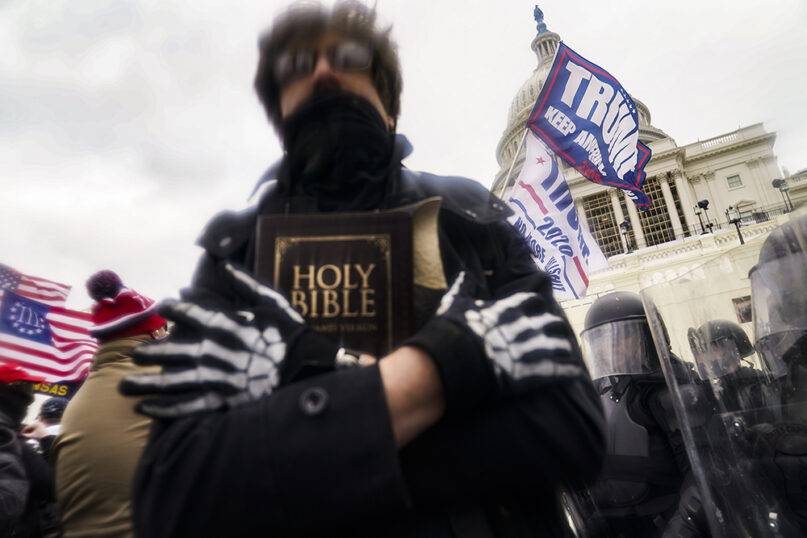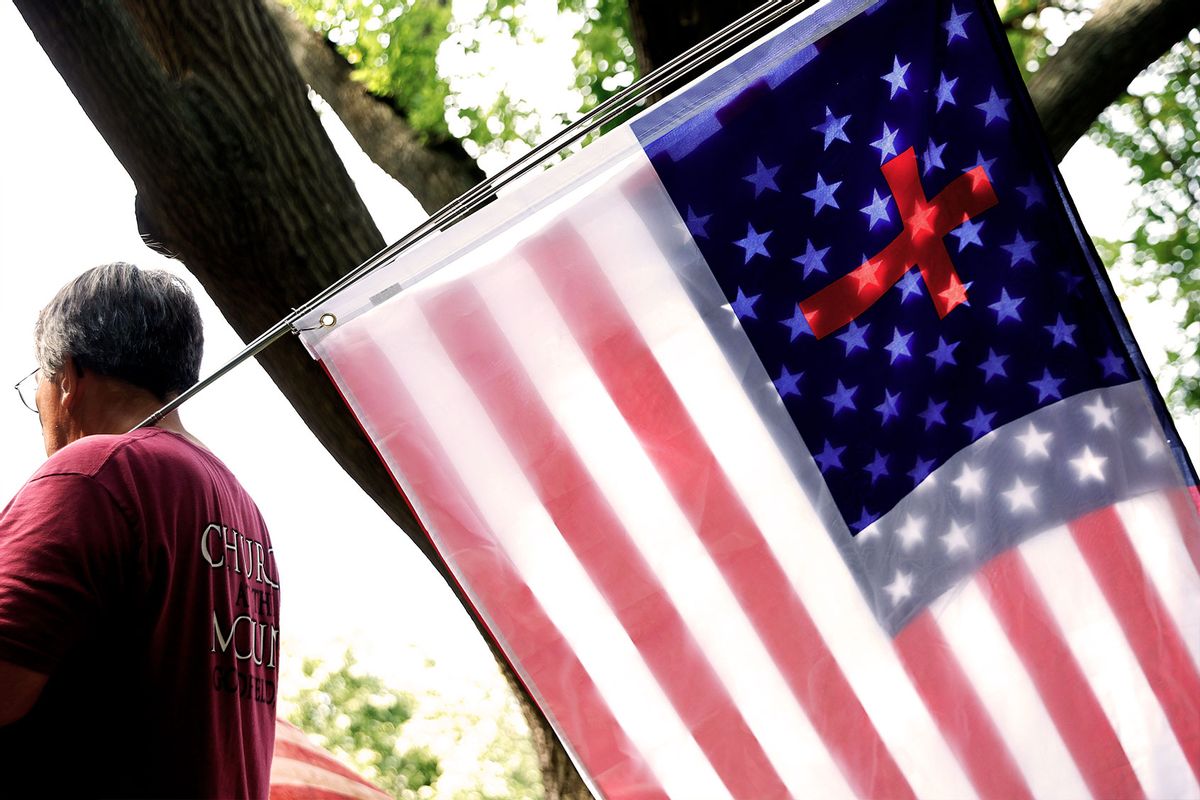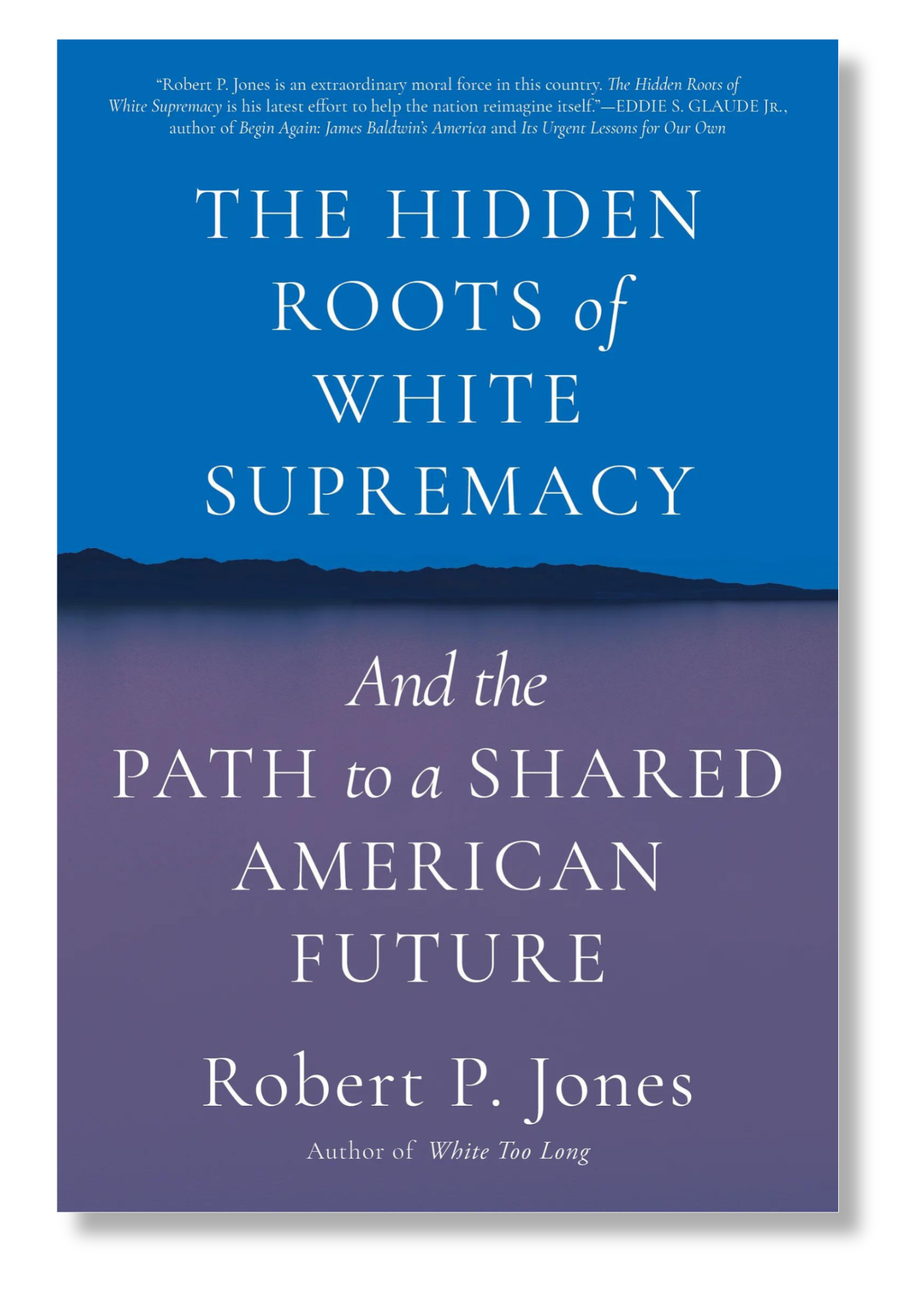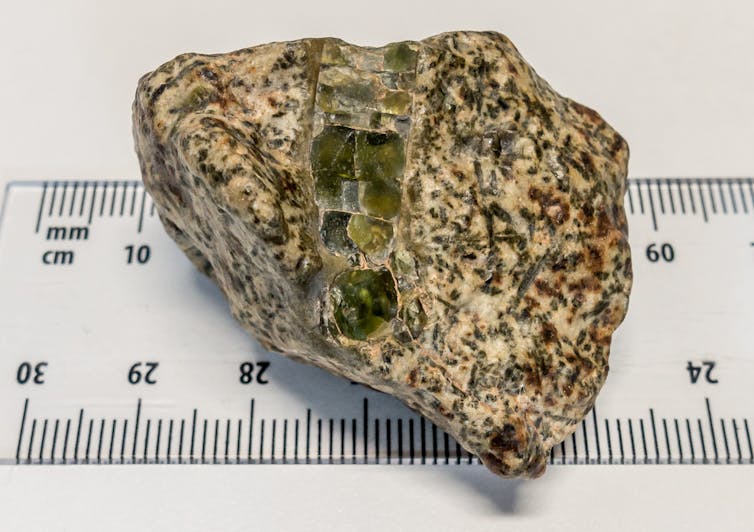Why Christian Nationalism makes American Christians less Christlike
What if the greatest danger to the witness of Christianity in the United States wasn't an outside threat? What if the danger was closer to home and looked so familiar that it was able to evade detection?

(RNS) — Growing up in a primarily white, conservative Christian community, I repeatedly heard warnings concerning what was going to destroy our Christian faith and the United States with it — feminism, divorce, homosexuality, Secularism or non-Christian faiths.
In presidential election years, these threats became even more acute.
Leaders instructed us to “vote our values” and ensure God’s blessing on the United States by placing the right people in positions of power to turn our nation back to God. Many well-meaning and earnest Christians, like myself, fell in line and did what we felt we had to do in order to return the United States to its Christian roots.
It was in this context I was taught to love Jesus, love my neighbor and seek to do God’s will. Being a good American meant being a good Christian. And being a good Christian meant accepting the correct beliefs, caring for those around you, standing up for what is right and advocating for our Christian convictions in the public square.
By doing these things, we could keep the dangers threatening America at bay.
But what if we were wrong? Not about the importance of living our faith out every day, at home and in the public square, but about the nature of the threats facing the country.
What if the greatest danger to the witness of Christianity in the United States wasn’t any of these outside threats? What if the danger was closer to home and looked so familiar that it was able to evade detection?
After years of examining Christian nationalism as a social scientist, I’m convinced the greatest threat to Christianity in the United States is not outside forces.
Instead, it is white Christian nationalism. Over and over, I find evidence that the practical fruit of Christian nationalism is not love; it is power, control, domination, fear and violence.
Christian nationalism makes American Christians less Christlike.
Here’s what I mean.
White Christian nationalism is a cultural framework asserting that civic life in the United States should be organized according to a particular form of conservative Christianity. In addition to the standard Christian religious and theological beliefs, Christian nationalism brings with it a host of cultural assumptions about who really matters and who should be in charge of life in the United States — primarily white Christian citizens.
Christian nationalism is not interested in a government for the people by the people, but rather for a particular people, by a particular people. Christian nationalism weakens the church by demanding it seek earthly, self-interested power, rather than seeking to support and serve the marginalized.
Central to Christian nationalism are three idols that make promises of protection and provision to American Christians and require allegiance: Power, Fear and Violence. These three idols co-opt our theological imaginations and distort our knowledge of God and neighbor. They lead us to betray our loyalty to Jesus and the gospel.
Power is the ability to get others to do what you want, despite their resistance.
Wielding power to serve one’s own group is tempting, especially when facing the political realities of living in a pluralistic, democratic society where collaboration and compromise are vital.
But when it comes down to democracy or power, white Christian nationalism chooses power every time.
Fear and a sense of threat, the second idol of Christian nationalism, focuses on a perceived loss of privileged access to power. It seeks to protect the people like us against “them.” It urges Christians to fear their neighbors — those with different skin colors, nationalities or religious beliefs — rather than love them.
Violence is a third idol of Christian nationalism. It is intimately intertwined with worshipping power and demonizing others through fear. When the fires of fear and threat are constantly stoked because “they” are out to steal “our” rightful power, violence is a natural result.
But the use of violence against our neighbors signals a distrust of the work of God in the world and seeing the image of God in all people. This weakens the church by building up dividing walls of hostility, rather than breaking them down.
Two clear examples of these three idols are our country’s continued struggle with racism and xenophobia. Christian nationalism weakens the church and threatens democracy by blinding us to the cries of those speaking out against social inequality. It obscures the structural and systemic causes of racial inequality. And because it claims that the United States has a special relationship with the Christian God, any criticism of America is seen as an attack on God and the Christian faith.
Ironically, the Bible itself is filled with criticism of God’s people when they fail to live up to God’s commands, and especially when they mistreat their neighbors.
I am convinced that we can all — whether Christian or not — recognize that Christian nationalism only leads to harm for our neighbors and betrays more loving expressions of the Christian gospel.
As the Rev. Martin Luther King Jr. showed us, “We are caught in an inescapable network of mutuality, tied in a single garment of destiny.” Injustice experienced by one community is injustice experienced by all.
When Jesus came he preached the Kingdom of God and a gospel that was good news to the poor, oppressed and imprisoned (Luke 4:16-21).
He was not only talking about our personal salvation but about abundant life for everyone.
Once we see the gospel as good news for the present, good news for the marginalized, good news for the prisoner, good news for the poor, good news for the blind and good news for the oppressed, we can begin to take the evidence that social science hands us about Christian nationalism and recognize that this ideology limits — and in many cases outright opposes — the work Jesus claimed he came to do and commanded us to do likewise (Matt. 22:37–40) — love the Lord your God, love your neighbor as yourself.
I have long wrestled with the implications of Christian nationalism for Christianity, both professionally and in my own faith journey. I hope the American church can move toward expressions of Christianity that allow it to regain its prophetic voice and no longer make it the servant of one particular vision for this nation.
By confronting Christian nationalism in our midst we can journey toward a future where everyone is allowed to flourish.
(Andrew Whitehead is associate professor of sociology at Indiana University-Purdue University Indianapolis, where he codirects the Association of Religion Data Archives at the Center for the Study of Religion and American Culture. He is the author of “American Idolatry: How Christian Nationalism Betrays the Gospel and Threatens the Church.” The views expressed in this commentary do not necessarily reflect those of Religion News Service.)








